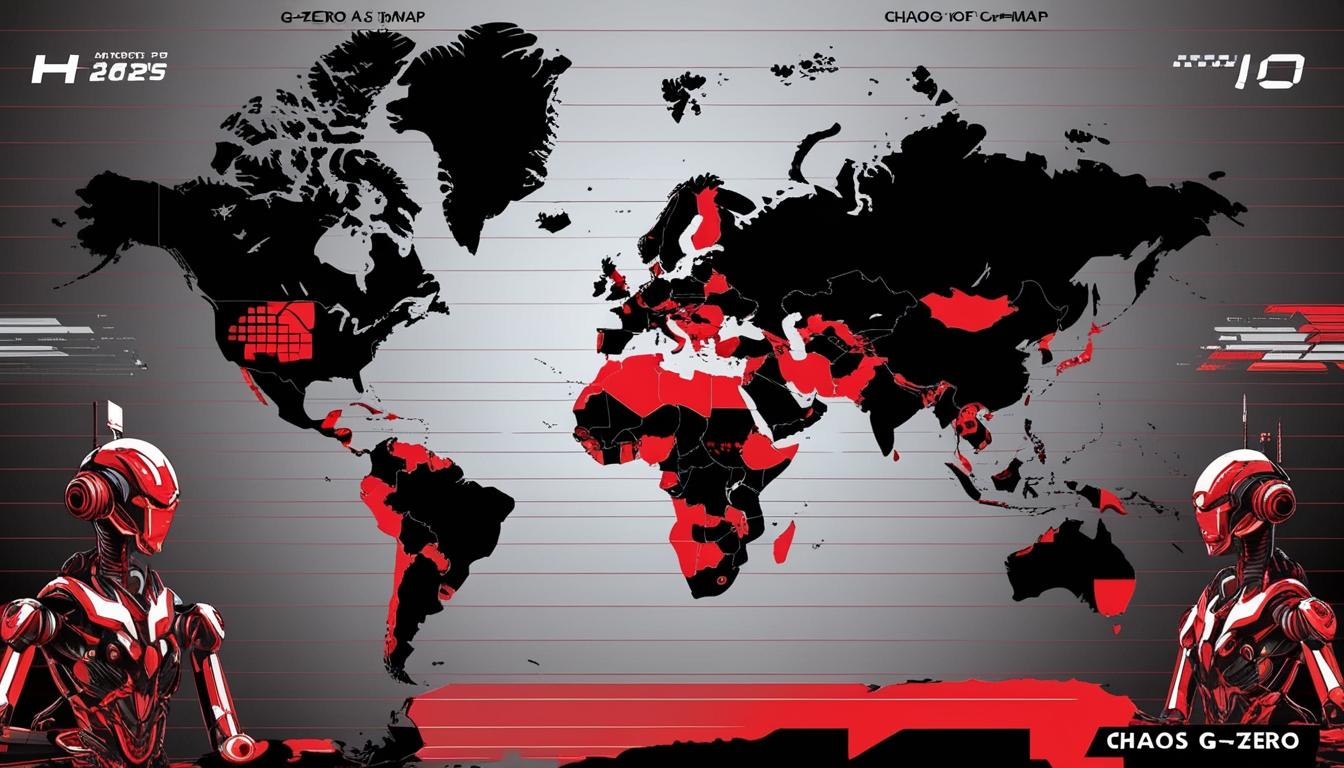The Eurasia Group, a prominent geopolitical risk and consulting firm, has identified key challenges that the world may face in 2025 during a recent analysis. This year’s list includes a diverse range of issues, from geopolitical power dynamics to technological advancements, with a particular focus on the implications of artificial intelligence.
Leading the list of concerns is the phenomenon described as "G-Zero Wins," which reflects a global landscape characterised by a lack of international leadership. Ian Bremmer, the president and founder of the Eurasia Group, articulated this developing scenario during an appearance on CBS Mornings, stating, "It's a return to the law of the jungle where the powerful do what they will and the weak do what they must and no one is really protecting them." This concept envisions an era where nations act in their own interests without cohesive international cooperation, matching observations of an increasingly American-first approach to global relations.
Significantly influencing this new world order is President-elect Donald Trump's anticipated second term, which is expected to commence in less than two weeks. Bremmer elaborated on this situation, noting, "It's not that he's going to fail, it's more that he has consolidated so much more power this time around than in 2017." He indicated that Trump's surrounding team is made up of individuals fiercely loyal to him, stating, "It's Trump's way or the highway." The implications of Trump's return to power extend beyond domestic policy, as international allies express concern over the unpredictability of U.S. leadership.
In the discussion of influential figures, Bremmer highlighted Elon Musk, a prominent entrepreneur and social media personality, as a noteworthy player in the geopolitical landscape. Despite not being an elected official, Musk's close relationship with Trump and his vast following on platforms like Twitter have raised alarms among international allies. Bremmer pointed out Musk's rhetoric, which includes calls for political upheaval in other countries, and suggested that governments may consider regulating social media to mitigate these concerns.
Artificial intelligence remains a critical issue, returning to the list as a notable risk. After making it to the top five concerns the previous year, AI is now ranked eighth. Bremmer acknowledged the potential of AI, calling it "fantastic technology," but expressed concern that "we are not regulating it in a way that is keeping up with the innovation." As AI continues to evolve, its implications on business practices, security, and everyday life are becoming increasingly complex.
The top ten risks for 2025, as identified by the Eurasia Group, include:
- The G-Zero wins
- Rule of Don
- U.S.-China breakdown
- Trumponomics
- Russia still rogue
- Iran on the ropes
- Beggar thy world
- AI unbound
- Ungoverned spaces
- Mexican standoff
By outlining these issues, the Eurasia Group provides a framework for understanding the multifaceted challenges that may shape global interactions in the approaching years. The analysis offers insight into the potential effects of geopolitical shifts and technological advancements on business and international relations.
Source: Noah Wire Services
